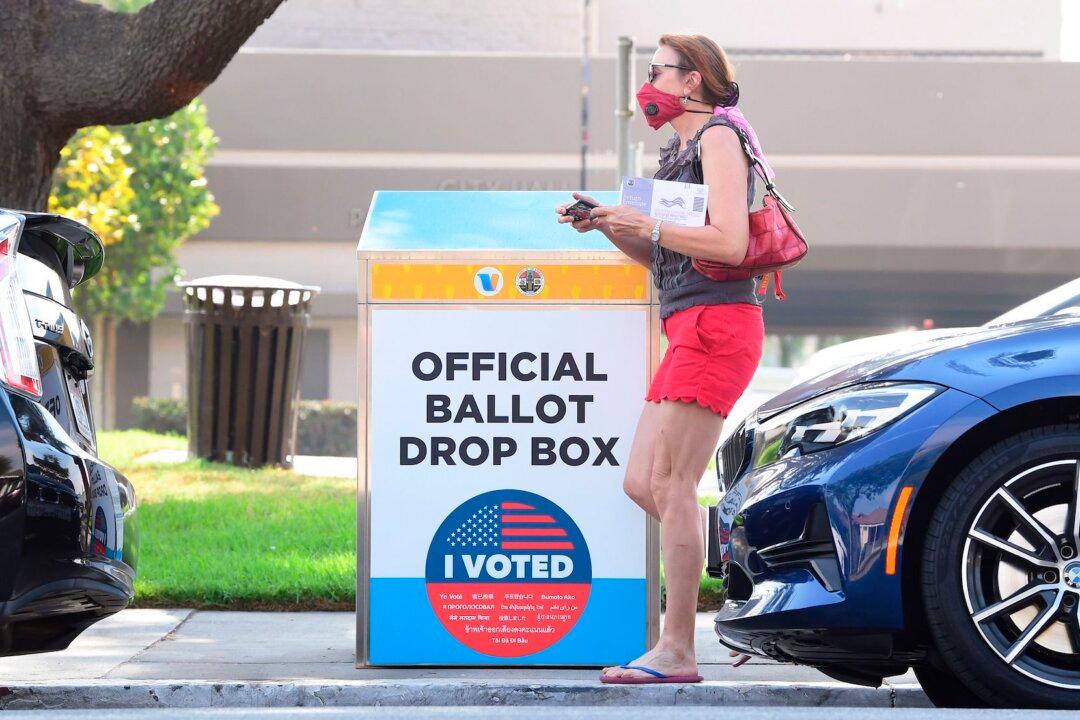The Wisconsin Elections Commission (WEC) has yet to release new guidance on how to handle absentee ballots for the Aug. 9 primary election after the state’s Supreme Court ruled that ballot drop boxes are illegal.
Republicans and Democrats on the commission repeatedly hit an impasse on July 12, when it came to deciding the meaning of the court’s July 8 ruling and how it should be interpreted and handled by more than 1,800 municipal clerks ahead of the primary.




